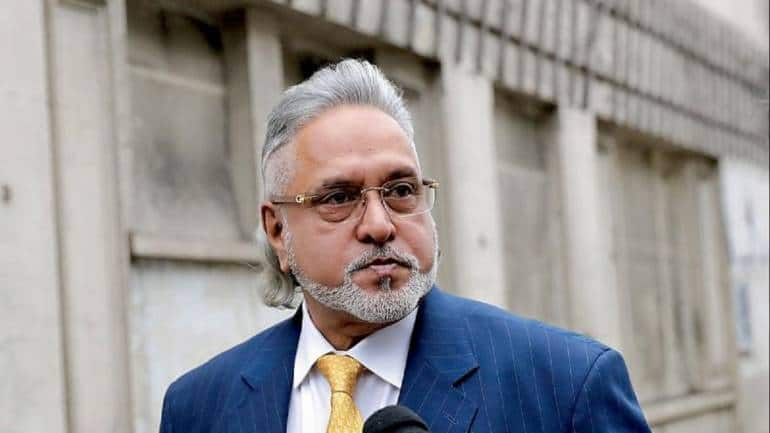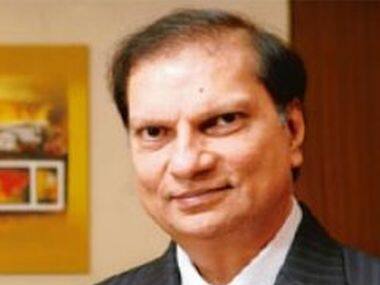



Bankers are hailing the government’s new norms for overseas investment. One key amendment to the rules makes it tougher for loan defaulters and those being probed by investigative agencies and regulators to siphon funds out of the country.
Under the notified rules, any person who is a resident in India and has an account appearing as a non-performing asset (NPA), or is classified as a wilful defaulter by any bank or under investigation by a financial service regulator or by investigative agencies in the country shall, before making any financial commitment or undertaking disinvestment overseas, obtain a no-objection certificate (NOC) from the lender bank, regulatory body or investigative agency before making investment abroad.
Also read: Govt’s new overseas investment rules to aid banks’ loan recovery, stop asset theft: Bankers
Prior to these rules, bankers learned some hard lessons in the corporate loan business from erring promoters who siphoned funds abroad while leaving lenders high and dry. In most of these cases, some or other fraudulent transactions were involved, and some of these powerful promoters have fought a legal battle with banks for years. Extradition attempts are still on in some cases.
Here’s a look at the five top cases where erring promoters of companies are reported to have offshored funds.
Vijay Mallya
The most high-profile case of promoters diverting funds overseas is that of embattled liquor baron Vijay Mallya. Mallya, declared a wilful defaulter, owed Rs 9,000 crore in principal and interest to a consortium of banks led by State Bank of India.
He, along with his firms Kingfisher Airlines and United Breweries, was charged for fraudulently diverting over Rs 3,700 crore of bank loan to a UK-based Formula 1 motorsport firm, a T20 Indian Premier League team, and for enjoying private jet sorties the Press Trust of India reported in June 2018, citing a charge sheet by the Enforcement Directorate (ED). The ED accused Mallya of “deliberately and intentionally” diverting the loan amounts from the bank accounts of Kingfisher Airlines to other bank accounts of his interest.
Mallya was known for his extravagant lifestyle. Shortly before the bankers’ consortium moved the Debt Recovery Tribunal seeking repayment of loans of his failed airline, Mallya fled the country in March 2016 for the UK. In 2020 he lost his final appeal against extradition to India at the high court in London. Still, there is no certainty on when Mallya will be back.
 Vijay Mallya
Vijay Mallya
Nirav Modi
In February 2018, state-run Punjab National Bank (PNB) revealed a fraud worth Rs 11,400 crore at one of its Mumbai branches. The bank filed a complaint with the Central Bureau of Investigation (CBI) saying billionaire jeweler Nirav Modi connived with some of its officials to defraud the bank using fake bank guarantees. Fake letters of undertakings (LoUs) were created to draw money from foreign branches of Indian banks on behalf of Indian banks linked to Modi and his uncle Mehul Choksi’s Gitanjali Group.
Following the scam, the ED found that Modi diverted about $629 million of the outstanding fraudulent LoUs to himself, his firms and his relatives through 15 “dummy companies” based in the UAE and Hong Kong, the Indian Express had reported in 2018, citing the first charge sheet filed by the agency. Modi has been in jail at Wandsworth Prison in London since his arrest in March 2019.
 Nirav Modi (File image)
Nirav Modi (File image)
Mehul Choksi
Mehul Choksi is said to have fled India just before the PNB scam emerged. The ED in September 2018 had said that Choksi diverted over Rs 3,250 crore of funds, allegedly defrauded from the PNB branch to foreign shores. The ED charge sheet showed that Choksi diverted $56.12 million of loan funds to Modi and about $50 million to Modi’s father Deepak Modi, PTI reported. Choksi, who even now has denied the PTI report on which this story is based, is reported to be in Antigua and Barbuda. Indian authorities are currently working to extradite him.
 File image of Mehul Choksi
File image of Mehul Choksi
Nitin Sandesara and Chetankumar Sandesara
Nitin and Chetankumar Sandesara were the promoters of Sterling Biotech, a major corporate loan defaulter to banks, including Indian Overseas Bank. The amount involved was over Rs 16,000 crore, the Economic Times reported, citing a charge sheet by the ED. Investigations revealed that Sandesara—along with another promoter, Diptiben Sandesara—not only diverted funds through layered transactions but also allegedly used funds for personal purposes.
According to a June 2021 report in The Wire, the Sandesaras is accused of using some of the defrauded money to buy cars and expensive properties, including a $5-million property in Hyde Park in Central London and a manor on a 10-acre plot in North London, and an apartment in Dubai Marina worth some $2 million.
Despite their fugitive status, they were allowed to invest large sums of money in construction projects across Albania, The Wire report showed. Further, more funds, investigators say, were diverted to the Sandesaras’ oil business in Nigeria while the family defaulted on their loans in India. Nitin Sandesara has also reportedly set up at least six companies in the British Virgin Islands, a tax haven. The promoters are still abroad and have not been extradited.
 Nitin Sandesara (File image)
Nitin Sandesara (File image)
Jatin Mehta
The Jatin Mehta-promoted Winsome Diamonds is another big corporate loan defaulter to Indian banks. The company and its subsidiaries owe around Rs 10,000 crore in principal and interest to a consortium of Indian banks, including PNB. The company was declared a wilful defaulter in 2016.
The CBI alleged that the diamond company diverted at least $750 million to six entities in Hong Kong, Bahamas and UAE that were directly or indirectly controlled by Mehta through a web of “dummy companies”, according to an August 2022 report in The Print. Mehta is reportedly residing in London.
Also read: India’s top 25 wilful defaulters owe about Rs 59,000 crore to banks, says Centre
What do experts say?
Under the Insolvency and Bankruptcy Code (IBC), there is no specific provision that restricts the movement of funds abroad, according to Nirav Shah, the partner at DSK Legal. Prohibition on diversion of funds originates from the legal obligations owed by the borrower to its stakeholders, including its lenders, Shah said, adding that any diversion of funds of the corporate debtor is wrongdoing.
Banks, however, “can not only initiate recovery action against the borrower or promoters in India and/or abroad to recover these funds but they can also simultaneously undertake the exercise of tracing the funds”, said Shah. “Lenders can adopt appropriate legal measures in the relevant jurisdiction.”
Now that the new overseas investment rules necessitate the need for a NOC from lenders, banks must be very stringent when granting such certificate in order to prevent wilful defaulters and NPA account holders from syphoning off funds, said Sandeep Bajaj, managing partner, PSL Advocates & Solicitors.
“Prior to granting such NOCs, the banks should seek detailed information such as the reason for making a foreign investment, when the entity or individual expect to bring such funds invested in foreign investments bank to India, and assess if the promoters of the defaulting entity or individual are likely to abscond,” added Bajaj.
Further, in case of any doubt arising on account of identical names, banks should use independent sources for confirmation of the identity of directors rather than seeking a declaration from the borrowing company, said Aditya Chopra, managing partner at Victoriam Legalis, a Mumbai-based law firm.
Discover the latest Business News, Sensex, and Nifty updates. Obtain Personal Finance insights, tax queries, and expert opinions on Moneycontrol or download the Moneycontrol App to stay updated!
Find the best of Al News in one place, specially curated for you every weekend.
Stay on top of the latest tech trends and biggest startup news.